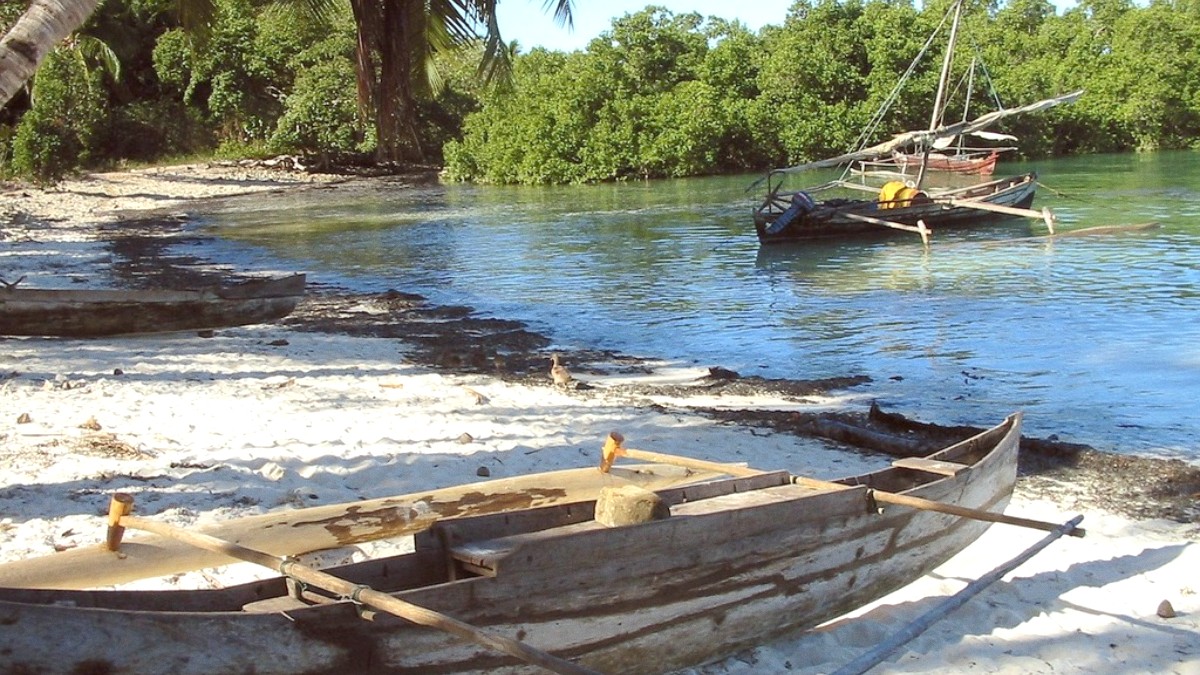
Kiribati's natural environment lends itself to unique water and wildlife explorations.
Possible in areas with healthy coral reefs. Outer islands or Kiritimati offer good spots with clearer waters. Diving is through limited operators in Tarawa and Kiritimati.
Possible in the lagoon or open ocean. Exercise caution with currents, tides, and potential hazards like stonefish. Some lagoon-side beaches in South Tarawa have pollution.
Rental availability for kayaking/paddleboarding is limited. Informal boat trips with local owners can be arranged for excursions, fishing, or lagoon cruises.
Negotiate prices and confirm safety standards for informal boat trips or local activities.
Engage with Kiribati culture through authentic interactions and events.
Traditional dance (ruoia) and singing performances can be seen during hotel cultural nights (though infrequent), national events, or village celebrations.
Some guesthouses or stays on outer islands directly support local communities. True community-based tourism projects are developing, but may require specialized booking.
No formal I-Kiribati language schools for tourists. Learning basic phrases is highly recommended and appreciated by locals.
National Day (July 12th) celebrates with parades, traditional performances, and sporting events. Other public holidays and religious festivals involve significant community gatherings.
Formal spa and wellness centers are extremely limited or non-existent. Some higher-end hotels might offer basic massage services. The island environment itself provides the main means of unwinding.
No hot springs or natural therapeutic sites. No established yoga or meditation retreats. Travelers can find quiet spaces for personal practice in accommodations or secluded beach areas.
Kiribati’s nightlife is understated and mainly caters to locals, especially in South Tarawa.
No designated bar districts or organized pub crawls. Bars are typically attached to hotels or operate as stand-alone local establishments.
Very sparse outside of basic bars and clubs in South Tarawa.
These can be lively, especially on weekends, but exercise caution and awareness, as they can sometimes be rough.
Bairiki Market (South Tarawa) is the main market, selling fresh fish, local produce, imported goods, and crafts. Smaller markets exist in Betio and Bikenibeu.
Formal workshops are not common. Crafts are typically made in villages. Look for artisans selling directly at markets or inquire through your accommodation.
Luxury and boutique shopping options are non-existent in Kiribati. Shopping focuses on local crafts and basic necessities.
Find unique mementos and understand shipping considerations.
Shipping items from Kiribati is expensive and can be unreliable. Post office services are basic.
Be aware of your home country's customs regulations for bringing back items, especially those made from organic materials (shells, plant fibers) or bone/wood. Declare items as required.
Souvenir options are limited compared to many tourist destinations, appreciate what is available.
Buy directly from local artisans at markets. This supports the community and ensures your money benefits the makers.
Be mindful of cultural significance if purchasing items with traditional uses.
Avoid purchasing anything made from endangered species, though this is unlikely for common Kiribati crafts.
Inter-island and regional travel can be unpredictable. Factor in extra time for potential delays or changes.